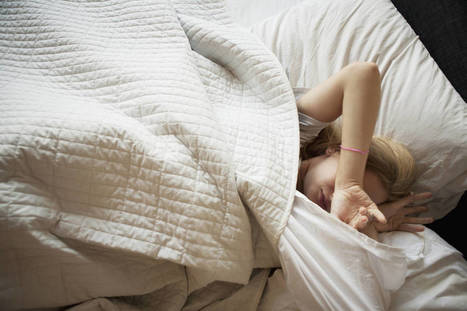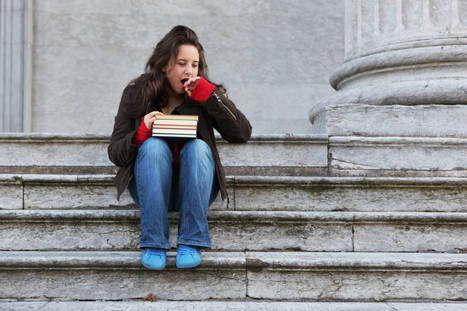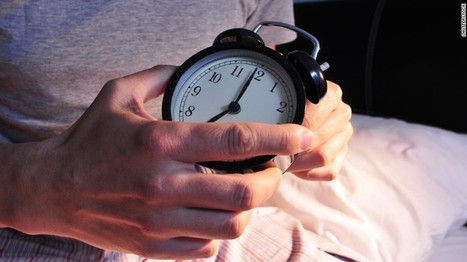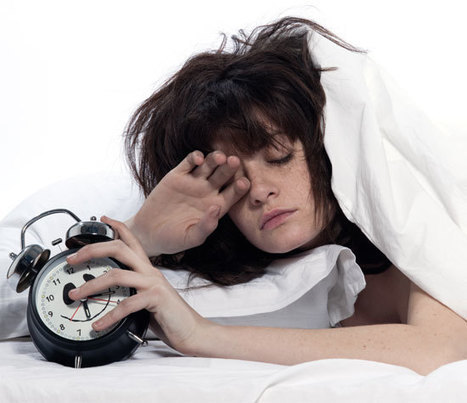 Your new post is loading...
 Your new post is loading...

|
Scooped by
John Evans
|
Many American teenagers try to put in a full day of school, homework, after-school activities, sports and college prep on too little sleep. As evidence grows that chronic sleep deprivation puts teens at risk for physical and mental health problems, there is increasing pressure on school districts around the country to consider a later start time.
In Seattle, school and city officials recently made the shift. Beginning with the 2016-2017 school year, the district moved the official start times for middle and high schools nearly an hour later, from 7:50 a.m. to 8:45 a.m. This was no easy feat; it meant rescheduling extracurricular activities and bus routes. But the bottom line goal was met: Teenagers used the extra time to sleep in.
Researchers at the University of Washington studied the high school students both before and after the start-time change. Their findings appear in a study published Wednesday in the journal Science Advances. They found students got 34 minutes more sleep on average with the later school start time. This boosted their total nightly sleep from 6 hours and 50 minutes to 7 hours and 24 minutes.

|
Scooped by
John Evans
|
The National Sleep Foundation recommends an average of eight hours of sleep per night for adults, but sleep scientist Matthew Walker says that too many people are falling short of the mark.
“Human beings are the only species that deliberately deprive themselves of sleep for no apparent gain,” Walker says. “Many people walk through their lives in an underslept state, not realizing it.”

|
Scooped by
John Evans
|
Some nights, it's like you can't get your brain to shut up long enough for you to fall asleep.
You're mentally reviewing the day you just completed while also previewing the day ahead; sometimes, your mind may even reach way back into the archives and pull up something embarrassing you did back in high school. So fun!
Racing thoughts can be a sign of a serious mental health condition like anxiety. But these nights also happen to everyone from time to time -- and once we're too old for bedtime stories, it's not always clear what to do.
There's no one solution that will work for everybody, of course, so instead, we've rounded up suggestions from eight sleep experts. At the very least, it's something to read next time you can't sleep
|

|
Scooped by
John Evans
|
Tell me if this sounds familiar: Your alarm goes off at 7:00 am. It’s a school day. It’s time to get out of bed and get ready to make that early morning bell. But in that moment, you feel as though there is no force on the planet that could make you open your eyes and surrender your comfortable position under the covers. Your mom comes into the room, already dressed for work. “You know,” she says, “you wouldn’t be so tired if you’d just gone to bed a little earlier.”
Is she right? Also, why isn’t she ever tired in the morning?
Most teens would agree that they’re much sleepier in the morning than their parents are. There’s a single molecule that’s largely responsible for this difference. And no, it’s not caffeine - it’s melatonin!

|
Scooped by
John Evans
|
The National Sleep Foundation recommends an average of eight hours of sleep per night for adults, but sleep scientist Matthew Walker says that too many people are falling short of the mark.
“Human beings are the only species that deliberately deprive themselves of sleep for no apparent gain,” Walker says. “Many people walk through their lives in an underslept state, not realizing it.”
Walker is the director of the Center for Human Sleep Science at the University of California, Berkeley. He points out that lack of sleep — defined as six hours or fewer — can have serious consequences. Sleep deficiency is associated with problems in concentration, memory and the immune system, and may even shorten life span.
“Every disease that is killing us in developed nations has causal and significant links to a lack of sleep,” he says. “So that classic maxim that you may [have] heard that you can sleep when you’re dead, it’s actually mortally unwise advice from a very serious standpoint.”
|
 Your new post is loading...
Your new post is loading...
 Your new post is loading...
Your new post is loading...














